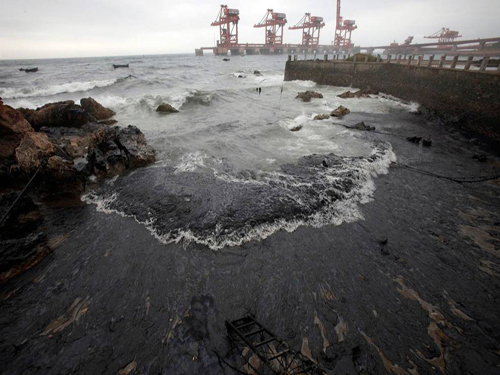 If it weren’t for oil spill accidents in Bohai Bay, the public would probably be less concerned about ConocoPhillips, a US oil company that is rarely mentioned in public view. And if it is not because of ConocoPhillips, the public may be seldom concerned about the legal responsibilities that transnational companies need to assume after causing environmental pollution.
If it weren’t for oil spill accidents in Bohai Bay, the public would probably be less concerned about ConocoPhillips, a US oil company that is rarely mentioned in public view. And if it is not because of ConocoPhillips, the public may be seldom concerned about the legal responsibilities that transnational companies need to assume after causing environmental pollution. On June 4th, 2011, the oil spill accident at the Penglai 19-3 oilfield operated by ConocoPhillips was discovered. In the following weeks, several oil spill points were discovered one after another. These oil spills directly led to the Bohai Sea. The water quality of the relevant sea areas has changed from one type of water quality to four types of water quality, and the aquaculture industry and marine ecological environment in coastal cities have been exposed to great risks. This is undoubtedly an environmental pollution accident due to the negligence of offshore oil well operations. The serious consequences and potential huge environmental risks it brings are very worthy of attention.
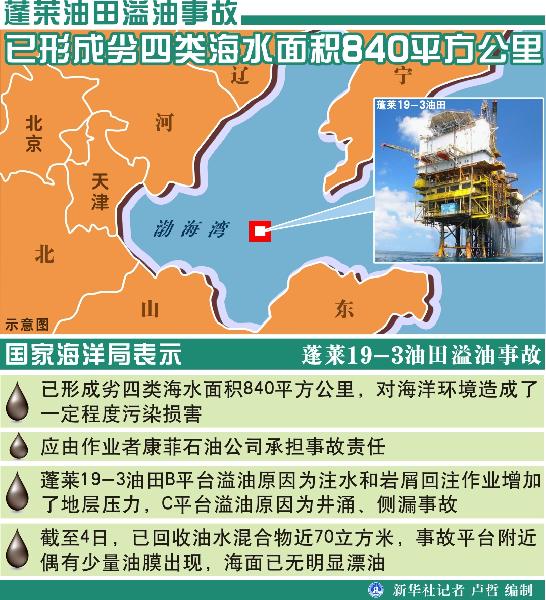
The oil spill accident in Bohai Bay reminded us of the oil spill in the Gulf of Mexico in the United States last year. These two incidents have similar accident scenarios, but the legal consequences of handling and responsible parties are quite different (http://opinion.hexun.com/2011-08-22/132679583.html). The huge gap between the two incidents in various aspects caused us to start to care. What should we know about the legal provisions involved in environmental accidents and the possible legal consequences? And through such environmental accidents, where are the defects exposed by the law?
In the ConocoPhillips oil spill, the first thing worth analyzing is ConocoPhillips' explanation of the cause of the oil spill accident.
In the Tort Liability Act that began in 2010, Chapter VIII stipulated environmental responsibility. Article 65 of the regulations stipulates that if the pollution is caused by environmental pollution, the polluter shall bear the environmental tort liability. Article 66 stipulates that because of environmental pollution disputes, polluters should bear the burden of proof for the absence of a causal link between the statutory circumstance of not assuming responsibility or mitigating responsibilities and the acts and damages. In short, the meaning of these two laws is that, for the responsible party causing environmental pollution, it is necessary to bear the legal responsibility, and such responsibility is not premised on fault.
In ordinary civil tort litigation, the principle of "who advocates and who gives evidence" is believed. This principle is conducive to balancing the litigation responsibilities between the plaintiff and the plaintiff. However, in the event of environmental pollution, there is a great deal of inequality between the party that pollutes the environment and the party who suffers from pollution damage, both in the status and strength of lawsuits. There is a big case where the injured party has no way to put forward evidence that he should be responsible for environmental pollution after suffering from environmental pollution. The responsible parties that cause environmental pollution in practice are generally big companies and large companies. If the power of the ordinary people alone is used, it is difficult to collect evidence to prove the defendant’s pollution behavior. Furthermore, based on the complexity of the environmental issues and the far-reaching impact, it is not just a matter of whether the polluters have fault or not to judge whether they should take responsibility. Therefore, from these perspectives, the law stipulates that the environmental pollution infringement acts as long as environmental pollution occurs, unless the defendant can provide evidence that there is no causal connection between the fact that the environment has been polluted and the behavior it has made. It is due to the legally prescribed exemption that the responsible party must be unconditionally liable for damage caused by environmental pollution.
This is the no-fault liability often stated in environmental protection law and environmental violations. In the ConocoPhillips oil spill accident, ConocoPhillips has been diluting the causal relationship between the seafloor oil leakage and its own mining behavior from the beginning. Emphasizing that this oil spill was caused by a natural fracture zone on the sea floor, and it was out of consideration to deny that the oil spill accident and the increase in pressure caused by irrigation in the reservoir resulted in a direct relationship between the fault zone and the reservoir.
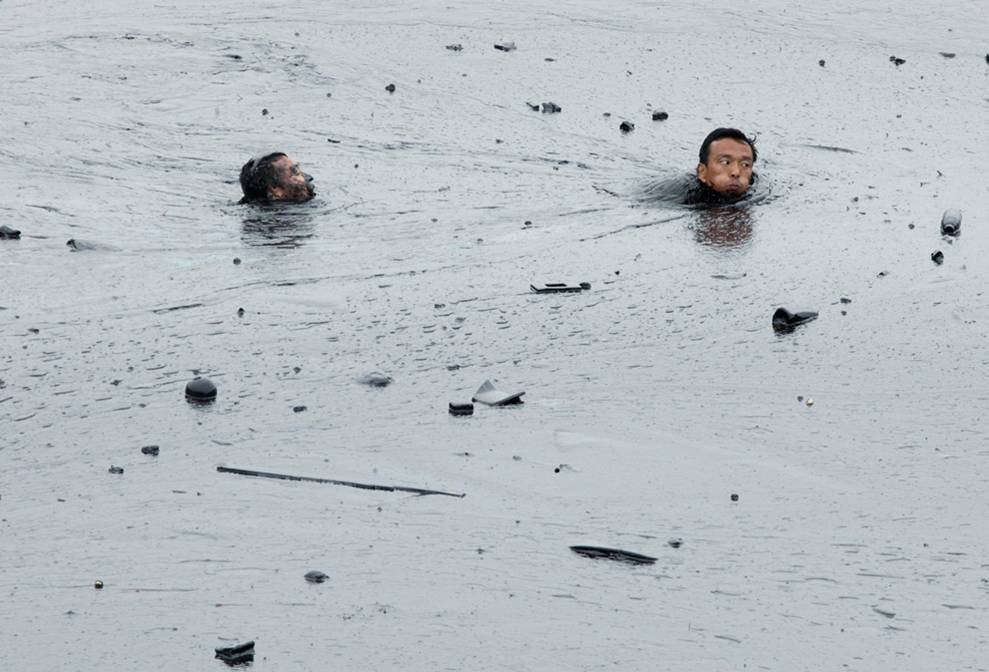
Secondly, ConocoPhillips's attitude towards negative handling of incidents is even more irritating and worth rethinking. It first made a so-called "prudential assessment" of the impact of the oil spill accident, and ignored the voice of apologetic demand (of course, it has already apologized). Another time after another two or three announced full control of oil spills needs to be postponed. However, the relevant administrative authorities are helpless. The reason for this is that ConocoPhillips has indeed seen the weakness of China's environmental protection-related laws.
The main law applicable to this accident is the Marine Environmental Protection Law. These include articles on the exploitation of oil, including articles 51 to 54, which specify the rules and obligations to be observed in petroleum-related operations. Regarding the responsibility for causing pollution to the marine environment, the oil spill incident mainly involved Article 73: "If any one of the following acts is violated in accordance with the relevant provisions of this Law, the marine environment supervision and management authority shall be exercised in accordance with the provisions of this Law. The department was ordered to make corrections within a time limit and imposed a fine:
(1) Discharging pollutants or other substances that are forbidden to be discharged into the sea area;
(2) Discharging marine pollutants in accordance with this Regulation, or exceeding the standards;
(3) failing to obtain a marine dumping permit to dump waste into the sea;
(4) If accidents or other unexpected incidents cause pollution accidents in the marine environment, they shall not take immediate measures to deal with them.
A person who commits any of the acts of items (1) and (3) of the preceding paragraph shall be imposed a fine of between 30,000 yuan and 200,000 yuan; if he commits any of the acts of items (2) and (4) of the preceding paragraph, he shall be liable to 20,000 yuan. A fine of not more than 100,000 yuan. "And Article 85: "In violation of the provisions of this Law for the conduct of offshore oil exploration and development activities that cause pollution to the marine environment, the national marine administrative department shall give a warning and impose a fine of 20,000 yuan up to 200,000 yuan. â€
In terms of liability compensation, only the provisions of the "Marine Environmental Protection Law" that provide for the provisions of Article 90 "responsible for causing damage to the marine environment, should eliminate hazards and compensate for damage. ••• to destroy the marine ecology, the ocean Where aquatic resources and marine protected areas cause heavy losses to the State, the department exercising supervision and management of the marine environment in accordance with the provisions of this Law shall, on behalf of the State, file damages claims for those responsible." and Article 91, paragraph 3, "to cause damages If a major marine environmental pollution accident causes public or private property to suffer serious losses or serious personal injury or death, it shall be investigated for criminal responsibility according to law.†Only. The setting of compensation rules is not detailed enough and there is also lack of operability in practice.
The last revision of China’s “Marine Environmental Protection Law†has been eleven years ago. Among them, the provisions on administrative penalties have completely failed to adapt to the new conditions reflected in the current environmental pollution problems. We can see that our country’s environmental protection laws are indeed overstretched in the punishment of responsible persons. In the chapter on the Legal Responsibility of the “Marine Environmental Protection Law,†the penalty amount specified in most laws and regulations does not exceed 200,000 yuan. The highest penalty amount is only one million yuan. Under this circumstance, since the passive work is merely the price of a fine of 200,000 yuan, the Conoco company, which is the main body of corporate interests, has to spend huge sums of money to make one and it is not a waste of effort. Can you discuss good things? The abnormally low amount of punishment has led to the slack of the responsible party in fulfilling its responsibilities. This is no good either for the remedy of the environment or for the compensation of the victims.
In this incident, regardless of whether the authorities had this determination, they would seek reasonable compensation in the lawsuit against ConocoPhillips. Even if the laws that can be found in the lawsuit can be complied with, it must be difficult to satisfy. Through the above analysis, we can also understand that ConocoPhillips' arrogance in dealing with oil spills is where emboldened is.
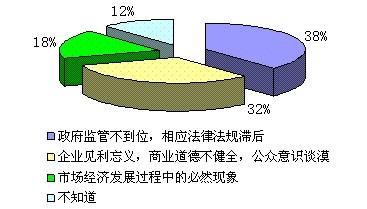
In fact, we can better imagine if the above problems are not a problem, we may be able to achieve satisfactory results in this oil spill in the Bohai Sea. However, through this oil spill in the Bohai Sea, we can see that there is more than that between the victims of environmental pollution and environmental damages.
The third point that is worth discussing is the litigation issue.
In the field of environmental litigation, there are three main bodies of lawsuits commonly recognized by countries, namely, the state, the subject of damage, and the subject of no interest. First of all, in the case of a particularly serious pollution accident, such as the oil spill accident in the Bohai Sea, the role played by the country is unquestionable. Relevant departments on behalf of the state to bring environmental damages lawsuits are also common practice in various countries. Secondly, for the lawsuits for damages caused by environmental pollution accidents, the subjects who have suffered direct damages, such as the fishermen who may be exposed to oil pollution during the oil spill accident, may also file a lawsuit. This is a basic right provided for by civil law. Its effectiveness is unquestionable. Once again, relevant organizations and individuals are also important players in environmental pollution litigation. Citizens or organizations that have no interest in the case may file a public interest litigation in court for the maintenance of public interests. This method has also been recognized in many countries in the world.
However, this route has encountered problems in China when it comes to public interest organizations. Because China's "Civil Procedure Law" stipulates that one of the qualifications that a subject in a civil lawsuit must bring is "the plaintiff is a citizen, legal person, and other organization that has a stake in the case." and a public interest organization and public interest lawyer. In the case of the case, it is seldom the subject of direct interest.
Maybe we can't help but ask. Now that we have citizens and the state as the subject of litigation, what is the role of public welfare subjects? In fact, public welfare entities are a very important part of environmental litigation. The state's prosecution of environmental pollution incidents depends to a large extent on whether the impact of this pollution is widespread. As the main body of the relevant national responsible agencies, in practice, civil litigation is seldom used in general environmental pollution cases. In fact, even in this case, the relevant responsible agencies also showed a tendency to err on the exercise of litigation rights. Citizens, as mentioned earlier, are actually weak. The injured party scattered throughout the Bohai Bay area could not, through its own efforts, make clear evidence of ability to collect lawsuits, sued multinational corporations, and dealt with protracted infringement lawsuits. On the contrary, the main body of environmental protection public welfare is both heart and force. The only thing missing is the legal recognition of his subject qualifications. This kind of defect is that we need to solve it as soon as possible and it should also be solved.
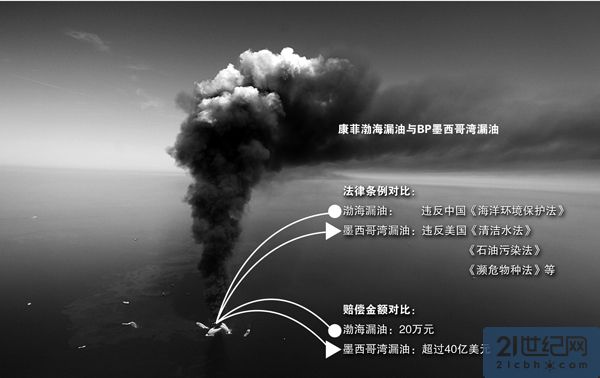
The oil spill incident of ConocoPhillips is actually only a small point in many environmental issues and environmental litigations in China over the years. The environmental legal issues exposed by this incident are far more than the above. The increasingly deteriorating environment due to economic development and the growing awakening of citizens’ legal awareness have jointly contributed to the fact that environmental legal issues have received more attention and attention from society. However, due to the accident, the backwardness of China’s environmental protection laws and the grim confrontation of China’s environmental protection situation have been exposed to the public.
Goethe once said that nature is not a problem but the only problem. After this case, we may also say that the law is not a problem but the only problem.
Laptop Backpack,Hiking Backpack,Travel Backpack,Large-Capacity Laptop Backpack
Dongguan C.Y. RedApple Industrial Limited , https://www.hpgbags.com